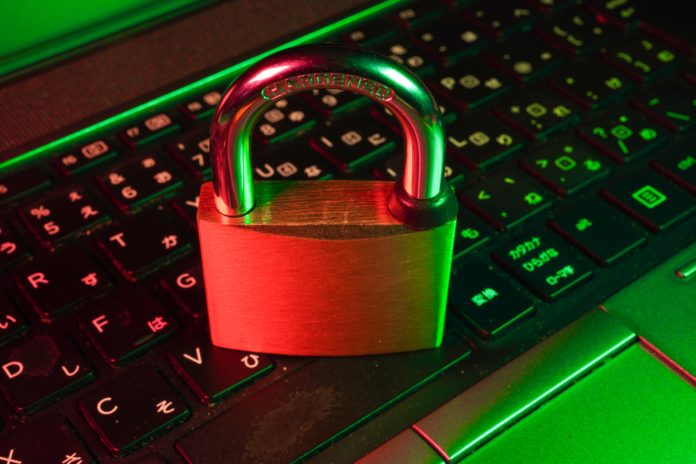Cyber threats are an increasing problem for small- and medium-sized businesses, especially with the major shift to remote work due to COVID-19. With this growing threat, small businesses need to take the necessary security steps, especially as AI technology drastically improves.
Securing physical business locations
A pragmatic and effective strategy to manage cybersecurity risks in commercial buildings requires comprehensive and active management. It is important to identify and quantify risks, especially as buildings have become smart and connected through the Internet of Things. To protect shareholders’ value and assets, a governance structure should be established.
Here are some 5 key attributes of your risk management strategy that will ensure that today’s smart building remains cyber-secure. These elements include:
Organisational governance
Executive-level commitments and awareness are key to effective cyber-risk management. This involves the creation of a cyber security vision that links into the overall organization’s, as well as a set of goals and metrics that will make that vision a reality.
Strong cybersecurity standards and frameworks
These standards and frameworks have established best practices that can be used to help in the creation of a cyber security strategy. These standards can be used as a guide to ensure that important security aspects are not missed.
Correct information gathering
A strategy requires an in-depth understanding of the potential threats to buildings and assets that may be at risk should a BMS be compromised.
Proper implementation of protective technology
It is important to have a systematic approach in order to identify and implement solutions that address the specific stages of a cyber-threat event. This includes detection, response, recovery, protection and protection. Managers can use a standard template to help them identify the right technologies for smart building control systems.
Adaptive Incident Response Plans
A comprehensive strategy must address what to do if certain elements fail to prevent a security breach.
Helpful Cybersecurity Tips for Small Businesses
As a business, it’s essential to secure your data and networks from cyber threats and attacks. Here are some helpful cybersecurity tips for companies, especially for small businesses.
1. Train employees in security
Training employees in security principles is one of the most important steps that a small business can take to protect itself from cyber threats. A company will be less likely to become the victim of an attack if it has a solid array of protocol and policies. Employees can be required to use strong passwords, and guidelines for internet use that include penalties for non-compliance. Employees should be taught what to watch out for, including fraudulent emails.
An effective cybersecurity training program for employees can help with all of this. One of the leading reasons of data loss is by internal employees accidentally or maliciously giving access to cybercriminals’ networks.
2. Focus first on the most important aspects of your business
A small business that wants to implement cybersecurity must first concentrate on its most important aspects. This will allow you to create a cybersecurity plan that protects your entire business. Consider which areas are most affected by technological changes and focus on securing critical operations. It is possible to make this easier by relying on security professionals or professional consultants to help implement the program.
3. Implement mobile device protection
A small business should also pay attention to mobile devices, among other devices because it could be an easy target for hacking. Because mobile devices can access corporate networks and often contain confidential data, they pose a security threat. Although they can be difficult to manage, there are some steps you can take to help prevent data theft through mobile devices.
4. Regularly change wi-fi passwords
It is crucial to ensure that cybersecurity is available at the home of employees as we move into a post COVID world. This has made it very difficult for many businesses to manage, opening up the possibility of cyber-attacks. Employees’ security at home is crucial for any business. Small companies should have employees follow the same security procedures as an office. Employees must first create strong passwords for their home routers and allow only trusted people to access them.
It’s also a great option to provide different internet access passwords in the office. You may assign a specific sub-network for specific departments and users in your office. For example, assigning a separate wifi access to guests or clients visiting your office, so your data is safe.
5. Provide VPNs
A small business can boost its cyber security by providing VPNs to their employees. This will protect any sensitive company data that might be compromised. You should not use a free VPN service that sells data to third parties. Choose a service location. Some countries have more privacy and data sharing laws. A VPN must be compatible with company devices and operating systems. It should also allow personalization and control of access.
6. Multi-factor authentication is a good option
Multi-factor authentication can be used to connect small businesses to private networks which can help in securing data. Multi-factor authentication uses numerical codes that are sent to your phone and then submitted with a username or password. This makes password theft more difficult for cybercriminals as it adds another step to the user’s process. Some versions run on the cloud which means that there is no digital footprint and only business personnel should have access. Some systems allow for the review of identities and can manage access rules so it is easier.
7. Security systems should be patched and updated
Security is a top priority for small businesses. Businesses that offer applications or video conferencing tools are often quick to fix vulnerabilities. However, businesses that fail to update their systems in time can be at risk.
Windows computers are especially vulnerable to malware and viruses. Windows updates provide the first line defense against them. Leaders should ensure that auto-updates have been enabled and are operational to make sure the business doesn’t fall behind.
8. Always have backup copies
Ransomware attacks are one of the most serious cybersecurity threats. They lock down a company’s data in order to make it pay ransom. Although large corporations may be able handle such a large sum of money, it can still be disastrous for small businesses.
Small businesses must ensure that backups are regularly performed and that backup data is stored offline to avoid this. It will be possible to recover if a ransomware attack is launched against a company. Backups are essential to protect critical data from cyber-attacks and other factors.
9. Prevent unauthorized access
Small businesses should do all they can to prevent unauthorized users from accessing or using their business computers. Laptops, such as those used for work, are frequently stolen or lost. They should be kept safe and secure. Administrator privileges should be granted to only IT professionals and trusted employees.
10. Limit software installation abilities
Employees should not be able to access all data systems or install software. They should only have access to the software they need to perform their job. If they are unable to do so, employees should ask permission to be allowed to leave those limits. This prevents bad or fraudulent software from reaching a company’s systems.
For a more comprehensive guide to cybersecurity, check out this article we published to help you get started.
New technologies are allowing small and medium-sized businesses to expand and reach new markets. However, they also increase cyber-attack risk. Every employee must be aware of the potential risks and have a comprehensive cybersecurity plan. Small businesses are more vulnerable to cyberattacks than large corporations.
Summary
Cyber threats are constantly changing and smart buildings systems are more vulnerable to cyber attacks due to the increasing use of internet-of–things devices. Organizations that adopt a proactive and comprehensive approach to managing their risks will be able to meet potential challenges both now and into the future.




































